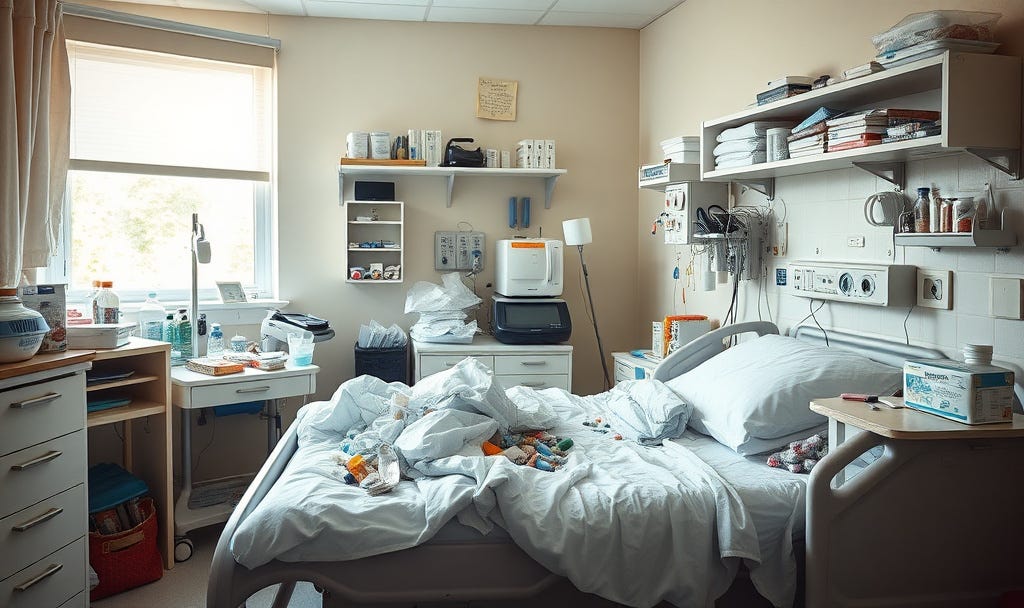The Hidden Cost of Rural Recovery: When Distance Defines Access to Help in Northern Wisconsin
Welcome to the rural wilderness of northern Wisconsin, where the scenery is breathtaking, but the road to recovery might just take your breath away—literally. Here, addiction recovery isn't just a battle of willpower, but a logistical nightmare involving miles of nothing but trees, lakes, and the occasional deer watching you try to figure out how to get help.
The Long Drive to Sobriety: More Than Just Miles
Let's talk about what "transportation barriers" really means in rural Wisconsin. According to rural health researchers, people often need to travel long distances to treatment, with fewer public transportation options than urban areas. This isn't just inconvenient—it's often the difference between getting help and not getting it at all.
What this means in real life:
- Gas money becomes recovery money
- Winter driving becomes a matter of life and death
- Missing work for a three-hour round trip to treatment
- Vehicle maintenance becomes as crucial as medication
- Arranging childcare for extended periods
Solutions in Motion
Some communities are getting creative. The Recovery on Wheels mobile unit is bringing services directly to rural residents. Think of it as a food truck, but instead of tacos, they're serving up recovery support. Other solutions include:
- Ride-share programs specifically for treatment
- Gas card assistance programs
- Volunteer driver networks
- Treatment center shuttle services
Telehealth: The Digital Lifeline (When It Works)
Wisconsin is pushing hard into telehealth solutions, with programs offering evidence-based online treatment options. But let's be real about the challenges:
The Good:
- Treatment from your couch
- No driving in snowstorms
- More frequent check-ins possible
- Access to specialists nowhere near you
The Bad:
- Spotty rural internet
- Technology barriers for some folks
- Some treatments need in-person care
- Insurance confusion about coverage
Tribal Initiatives Leading the Way
Wisconsin's tribal communities are pioneering innovative approaches to recovery. The St. Croix Tribal Behavioral Health Clinic offers culturally informed treatment that combines traditional healing practices with modern addiction medicine. Meanwhile, a new $18-million Adolescent Recovery and Wellness Center is in development, showing how tribal communities are taking the lead in addressing these challenges.
Community Support: The Real MVPs
Wisconsin is building a network of certified peer specialists—people with lived experience who can support others in recovery. These peer support programs are proving crucial in rural areas where formal treatment might be distant.
Local Support Networks Include:
- Recovery community organizations
- Peer-led support groups
- Faith-based initiatives
- Recovery coaches
- Family support networks
Looking Forward: What We Need
The reality is, this isn't just a Wisconsin problem—rural communities across America face similar challenges. But we can't fix what we don't discuss. So, we're asking you:
- What transportation solutions have worked in your community?
- How has telehealth helped or hindered your recovery journey?
- What creative solutions have you seen or imagined?
- What resources would make the biggest difference in your area?
Share your thoughts in the comments below. Your idea might be the solution someone else needs.
Take Action
If you're struggling with access to treatment in rural Wisconsin:
- Call the Wisconsin Addiction Recovery Helpline
- Connect with local peer support specialists
- Explore telehealth options with your insurance
- Join local recovery community organizations
- Advocate for better transportation solutions in your area
Remember, recovery shouldn't depend on your zip code. While we work on long-term solutions, let's build a community of support that bridges the gaps—one mile, one connection, one recovery at a time.
What solutions have you seen work in your rural community? Share your experiences and ideas below. Your insight could help shape the future of rural recovery support. -Belle-






No comments:
Post a Comment